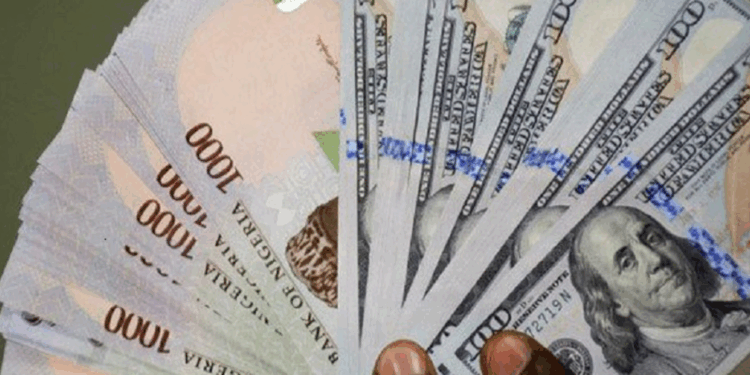The Naira ended the week stronger at N1,455.5 per US dollar on Friday.
This is according to data published on the Central Bank of Nigeria (CBN) website. This marks an improvement from N1,461/$1 recorded on Thursday, reflecting a sustained trend of relative stability in the foreign exchange market.
Throughout the week, the currency showed resilience. On Wednesday, it closed at N1,462/$1, marginally better than N1,464.5/$1 recorded on both Tuesday and Monday, showing a modest but consistent gain.
During the week, Nairametrics data shows that, in the parallel market, the currency hovered between N1,487/$1 and N1,492/$1.
Week-on-Week Performance
Compared to the previous week, the Naira demonstrated a stronger performance. The currency closed last week at N1,471/$1, while this week’s closing rate of N1,455.5/$1 represents an appreciation of about N15.5, or roughly 1% week-on-week.
Similarly, during the preceding week, the Naira had ended on a firmer note, improving from N1,474/$1 to N1,471/$1, suggesting that the recent upward trajectory is part of a broader trend of gradual strengthening in the market.
Market analysts attribute the currency’s improved performance to increased dollar inflows, enhanced CBN liquidity interventions, and stabilizing investor confidence in the government’s ongoing monetary reforms.
Foreign reserves climb to $42.8 billion
In a related development, Nigeria’s foreign exchange reserves rose to $42.8 billion, up from $42.79 billion earlier in the week. According to checks by Nairametrics, this marks the highest reserve level since September 12, 2019, when the reserves stood at approximately $42.84 billion.
The steady increase in reserves is seen as a positive indicator of improved foreign inflows and prudent reserve management by the CBN. Analysts note that this provides a stronger buffer for defending the Naira against external shocks and supporting macroeconomic stability.
With the Naira posting consistent gains and reserves edging higher, market observers remain cautiously optimistic. Sustained fiscal discipline, transparent FX management, and ongoing structural reforms are expected to further strengthen the local currency in the coming weeks.
What you should know
The Governor of the CBN Yemi Cardoso had said the Naira is now “more competitive” following months of economic reforms and currency stabilization efforts.
Speaking at a G24 media briefing on the sidelines of the ongoing IMF/World Bank Annual Meetings in Washington, Cardoso emphasized that Nigeria’s proactive measures have created resilience against global economic shocks.
“We were able to create resilience and buffers against potential shocks,” Cardoso said on Tuesday. “In terms of anchoring expectations, we found that those who followed the Nigerian economy were fairly comfortable.” He noted that while oil remained Nigeria’s most exposed commodity, the impact had been “relatively modest.”
Also speaking at a press conference on the sidelines of the IMF and World Bank Annual Meetings in Washington D.C., Cardoso said that investor confidence in Nigeria’s economy is strengthening, buoyed by ongoing reforms that have stabilized the naira, slowed inflation, and improved transparency in monetary operations.
Cardoso said the naira continues to strengthen, with the gap between official and Bureau de Change (BDC) rates narrowing to below 2%, reflecting growing market confidence and reduced speculation.
Standard Bank has projected that the Naira will close at N1,458.8/$1 by December 2025, and slightly weaker at N1,473.0 by December 2026, amid improved foreign exchange (FX) reserves, buoyant banking system liquidity, and growing investor confidence in naira assets.










